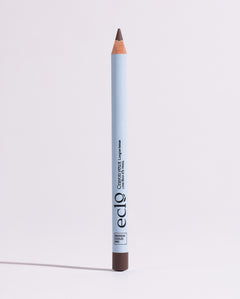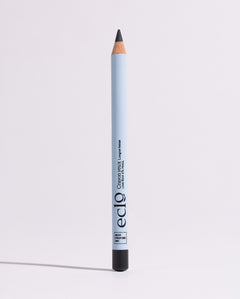It's a truth as hopeful as it is real: the future can be better than we imagine if we help the earth, economies, societies and people to regenerate. If well-thought-out innovation, not necessarily high-tech, is put at the service of this natural regeneration, taking us from a mode of degradation to a mode of restoration, from disease to good health and from soil drought to fertility... Then a wonderful world is possible!
A concept as old as the earth to some, but relatively new to most, regeneration is a subject you may have heard of before, and we're sure you will again, particularly in the beauty industry.
Inspired by the living world, the regenerative and circular economy encompasses all positive and regenerative practices ,going further than just limiting negative impacts. From there, regenerative agriculture, which has its origins in permaculture, has developed under the impetus of the agri-food industry and is now spreading to all industries, particularly textiles and cosmetics.
But what is regeneration?
Regeneration, also sometimes called regeneration, is the ability of a living entity (genome, cell, organ, organism, ecosystem) to reconstitute itself after part of it has been destroyed.
This is true for human beings, with their skin, hair, liver, nails and bones... but also for the earth, forests, crops, animals and even our economies! All life on earth exists thanks to regeneration. Without regeneration there would be no seasons, no biodiversity, no new babies, no new businesses, no civilization, no life on earth. It's a natural process. And this process is all the more marvellous for its fragility, for there is also degeneration, which marks the decline or even the end of everything listed above.
From regenerative economy to regenerative agriculture
For agriculture, the concept of regeneration obviously makes a great deal of sense. "Regenerative Agriculture" describes all farming methods which, among other benefits, help reverse climate change by replenishing organic matter and restoring biodiversity to the soil.
It is therefore essential to work towards the transition to regenerative agriculture. As a reminder, Global Footprint Network estimates that to regenerate or reproduce what humanity consumed in 2022 would require today the equivalent of 1.75 times what the Earth is capable of regenerating today. We've got work to do, but it's not impossible.

Eclo's commitment
At Eclo, we encourage the development of regenerative agriculture at every stage of the value chain. From the sourcing of our active ingredients to the education of our consumers, in close collaboration with our partner association "Pour une agriculture du Vivant" (we warmly recommend you visit their website https://agricultureduvivant.organ incredible source of education for all).
We work together to choose active ingredients that are beneficial to both skin and soil, such as Rye, Hemp and Seaweed, and we seek to create new raw material chains.
Everything is regeneration
The economy too must be regenerative. And we're sharing some good news with you: by a unanimous vote of its Board meeting in Montreal on the occasion of the #COP15 Biodiversity Conference, in December 2022, the International Sustainability Standards Board (ISSB) has placed the regenerative economy at the heart of international finance standards.
The ISSB considers that "it is by taking care to preserve, develop and regenerate all the resources it uses (financial, human, natural) that a company can access them over time to achieve its objectives. By referring to this articulation of the integrated value creation process, a company will explain to its investors how it works sustainably with its ecosystem, taking into account the impacts, risks and opportunities that can affect its performance and its future."
As you can see, the future will be regenerative, or it won't be. So take care of yourself, regenerate yourself, take care of the earth, and let's move forward collectively and intelligently towards a flourishing 2023!
And to go further:
|



